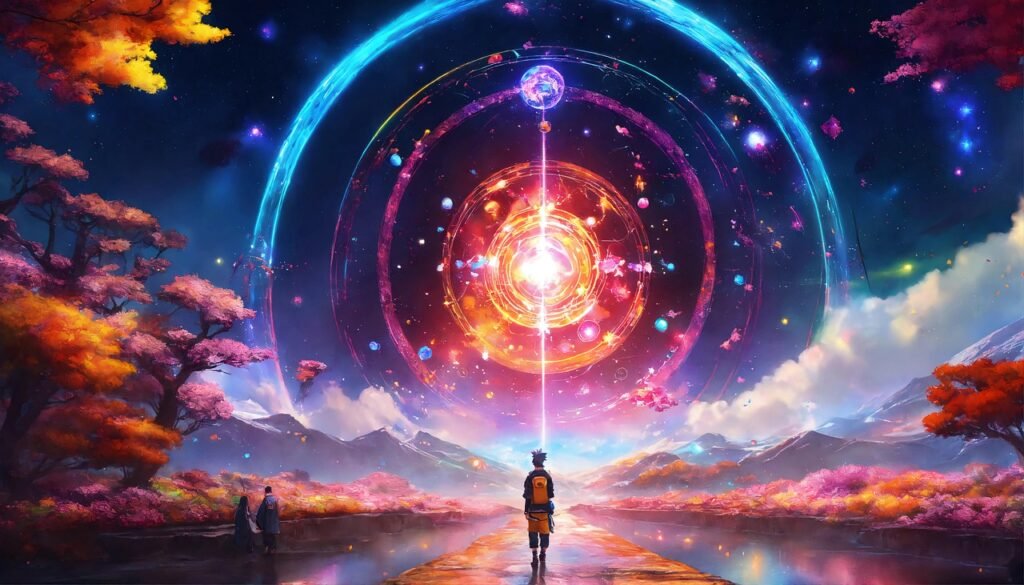Photo by Pixabay
The Genesis!
Well, why I am putting my pen to paper or is this line even true now? Instead of delicately guiding a pen across paper, I now engage with the rhythmic dance of keys beneath my fingertips to encapsulate my musings. Though my heart yearns for the conventional, the current dictates an evolution in approach. The genesis of my prose lies in the whimsical divergence of interpretation spawned by a single word. As it unfurled its nuanced meanings to two distinct minds, an enigmatic curiosity seized me, compelling a quest to delve deeper into its essence.
The Dilemma?
Epicurean-A person devoted to sensual enjoyment, especially that derived from fine food and drink. Or Epicurus – an ancient Greek philosopher and sage who founded Epicureanism, a highly influential school of philosophy and leading to it was the Epicurean Paradox which has baffled great minds over the ages. The Epicurean paradox raises a poignant query regarding the existence of a benevolent and omnipotent deity, often articulated in the following manner: “Is God willing to prevent evil, but not able? Then he is not omnipotent. Is he able, but not willing? Then he is malevolent. Is he both able and willing? Then whence cometh evil? Is he neither able nor willing? Then why call him God?” This paradox intricately challenges the conventional notion of an all-powerful and benevolent divine being, positing that the coexistence of evil with such a god is fundamentally incompatible. While not a conventional riddle, it serves as a catalyst for contemplation on the nature of God and the pervasive presence of suffering in our world.
The Background!
Embarking on this brief odyssey, allow me to offer you a glimpse into the tapestry of my existence, an essential prelude to unravel the intricacies of my psyche. Nurtured in the embrace of a home where the feminine essence danced gracefully with spirituality and devotion, I found myself occasionally partaking in these rituals, drawn more to the allure of camaraderie and culinary delights than an earnest fascination for the divine. In the hallowed halls of our abode, the female figures, custodians of sacred traditions, gracefully wove the fabric of spirituality. I, however, trod a path parallel yet distinct, often shadowing the footsteps of my venerable Father as we served in the temples. Amidst the aromatic incense and hallowed chants, I stood, a spectator of the sacred theatre, never once lowering my head in obeisance or immersing myself in the rhythmic cadence of worship. A silent observer, I partook in the rituals more as a son of tradition than a disciple of the sacred rites. Despite my limited grasp on the complexities surrounding God and the intricate nature of divinity, it would be a misinterpretation to conclude that my understanding—or lack thereof—translates to a lack of belief. The enigma of God, often eluding complete human comprehension, does not diminish the sincerity of my faith. I acknowledge that the divine is a nuanced and multifaceted concept, perhaps extending beyond the limits of human intellect. However, the incapacity to fully unravel the intricacies of God does not diminish the profound sense of awe, reverence, and faith dwelling within me. In its purest essence, belief doesn’t always hinge on absolute understanding; rather, it can flourish in the realm of mystery, fostering humility in the face of the divine unknown. My belief in God endures as a testament to the enduring power of faith, even in the absence of complete understanding.
The Realisation!
Returning to the genesis of this exploration lies the “Epicurean Paradox.” My quest for resolution guided me to the pages of “Be a Cosmic Channel – in the era of Chaos” a literary creation penned by Quanto Shivo. Candidly, my literary voyage has seldom delved into spiritual doctrines, religious tenets, or narratives encompassing the broader world. Lacking a comparative context or background, my insights stem solely from the content I’ve encountered within these pages. I commend Quanto Shivo for crafting a narrative that even novices, like me, find approachable. For the purpose of this Blog, I shall focus exclusively on the aforementioned paradox, eschewing deeper exploration into other facets of the text. In the Upanishads, God is referred to as Brahma, signifying the ever-expanding entity. Notably, no religious doctrine has hitherto characterized God as such, as the evolutionary essence of life eluded their understanding. Recent scientific revelations corroborate the ancient Upanishadic assertion, affirming the universe’s ongoing expansion at an accelerated pace. The narrative contends that we bear a pivotal role in the expansion of our consciousness. While individuals toil to construct their distinct identities, the ultimate culmination of these identities aligns with divinity, belonging to the entirety of the cosmos, which, in turn, belongs to each individual. When personal identities dissolve, not only do they become accessible to the cosmic expanse, but in that boundless space, the collapsed identities of all beings become accessible to the observer. The transformation of identity into divinity marks the emergence of the Cosmic Channel. Hence, one could infer that this text propounds the notion that, in time, each of us will evolve into an Avatar, elucidating the journey toward such a transcendent state.
The Wait!
I entrust readers with this contemplation, aspiring to kindle curiosity that beckons them towards delving into this book, savouring its profound and soul-stirring revelations. Anxiously, I anticipate the moment when the finalized version of this literary masterpiece graces my hands, eager to immerse myself in the full spectrum of its enlightening content.

– Rajat Bagchi

